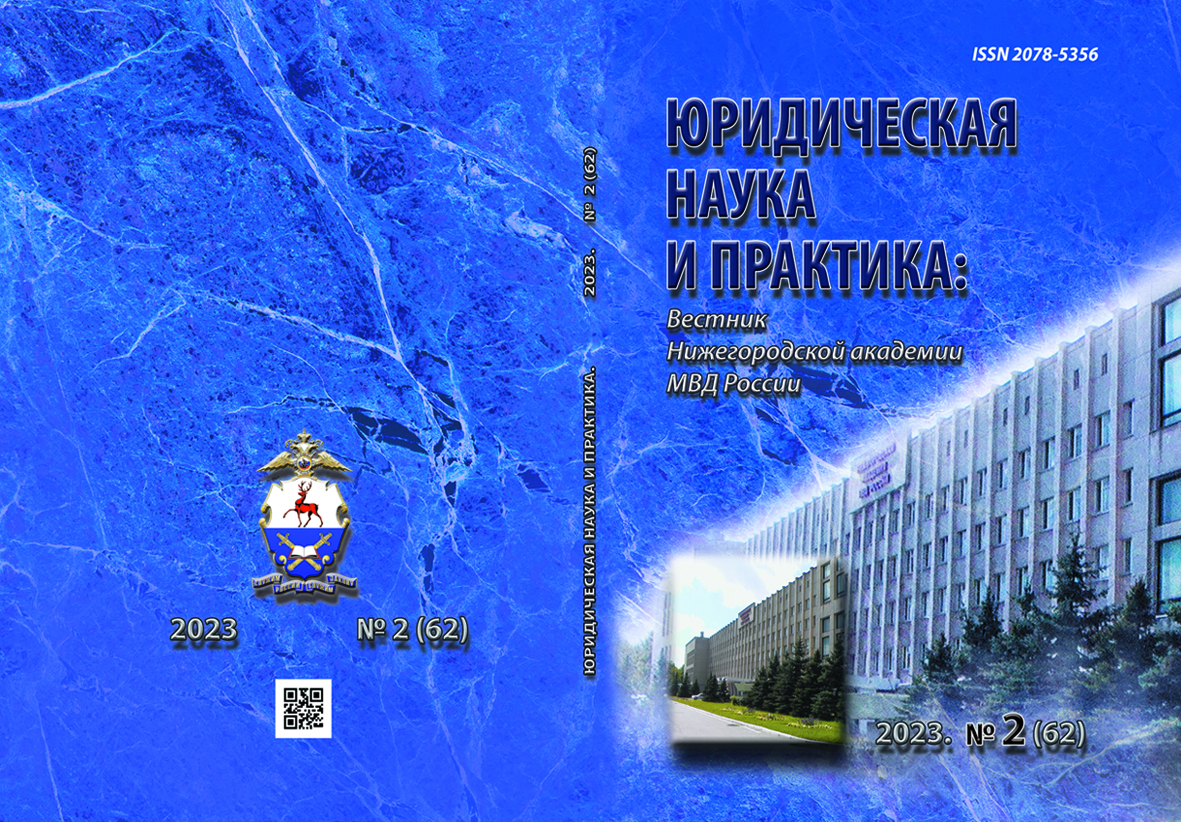Russian Federation
Russian Federation
This article deals with the problems of understanding legal provisions, their essential properties. Despite the fairly frequent use of this concept by scientists when characterizing issues related to the sources of law, the legal literature states the controversy of their role and significance in the domestic legal system. There is no doubt about the practical and theoretical significance of establishing the definition of legal status and its main features, since it is a tool that contributes to the stabilization and timeliness of the implementation of law-making and law enforcement activities. strategic goal to be achieved. According to the authors, the high dynamics of the development of social relations and the lagging nature of law-making activity puts legal practice as a decisive factor influencing the processes of formation of law. The phenomenon under study is distinguished by such properties as unsettled life situations in general or in some significant part; legitimacy, timeliness, validity and motivation of the content; acceptance of a special subject; legal novelty; subnormative, subsidiary and temporary. The presence of legal provisions is justified by the efficiency of law enforcement, its close connection and constant work with real social relations, which makes it possible to more effectively determine the needs of legal regulation.
legal position, law-making, law enforcement, concretization of law, dynamics of law, legal practice, precedent
1. Sorokin V. D. Legal regulation: subject, method, process (macro level). St. Petersburg, 2003. 661 p. (In Russ.)
2. Alekseev S. S. Problems of the theory of law: a course of lectures in 2 volumes. Sverdlovsk, 1972. Vol. 1. 396 p. (In Russ.)
3. Goloskokov L. V., Abakumova T. I. The time factor in the law-making policy of Russia. Law-making policy in modern Russia: coll. scientific proceedings based on the materials of the All-Russian round table / total ed. by A. V. Malko, N. V. Isakov, A. P. Mazurenko. Saratov-Mineralnye Vody, 2009. Pp. 37-45. (In Russ.)
4. Trofimov V. V. Law formation in modern society: theoretical and methodological aspect / ed. by N. A. Pridvorov. Saratov, 2009. 308 p. (In Russ.)
5. Marchenko M. N. Sources of law: textbook. Moscow, 2008. 760 p. (In Russ.)
6. Korostelkina O. N. Judicial practice and judicial precedent in the system of sources of Russian law. Author’s abstract... candidate of legal sciences. Moscow, 2005. 20 p. (In Russ.)
7. Zhilkin M. G. The concept, origin, legal nature of the legal position and their role in legal regulation. Bulletin of the Moscow University of the Ministry of Internal Affairs of Russia, 2014, no. 10, pp. 73-78. (In Russ.)
8. Elchibaev B. Z. On the expediency and significance of the generalization of judicial practice by administrative and other courts of the Republic of Kazakhstan. Administrative law and process, 2009, no. 4, pp. 23-26. (In Russ.)
9. Arbitration Procedure Code of the Russian Federation no. 95-FZ of July 24, 2002 (as amended of March 18, 2023). Collection of legislative acts of the RF, 2002, no. 30, art. 3012. (In Russ.)
10. On some issues of the participation of the prosecutor in the arbitration process: decree of the Plenum of the Supreme Arbitration Court of the Russian Federation no. 15 of March 23, 2012 (as amended of January 25, 2013). Bulletin of the Supreme Arbitration Court of the Russian Federation, 2012, no. 5. (In Russ.)
11. Decision of the Arbitration Court of the Sverdlovsk Region of February 24, 2022 in case no. A60-49417/2021. URL: https://sudact.ru/arbitral/doc/WgSWB9PiOwrH/ (accessed 10.04.2023). (In Russ.)












